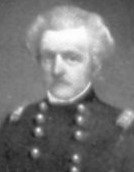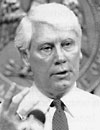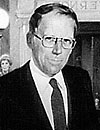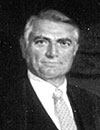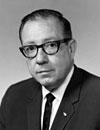This website uses cookies so that we can provide you with the best user experience possible. Cookie information is stored in your browser and performs functions such as recognizing you when you return to our website and helping our team to understand which sections of the website you find most interesting and useful. Please see our privacy policy for more information.
Mississippi
Gov. John Anthony Quitman
-
December 3, 1835 - January 7, 1836
November 5, 1849 - February 3, 1851 - Democratic
- September 1, 1798
- July 17, 1858
- New York
- Married Eliza Turner; four children
- Resigned
- Representative
- Army
About
JOHN A. QUITMAN, the tenth and sixteenth governor to serve Mississippi, was born in Rhinebeck, New York on September 1, 1798. His education was attained at Hartwick Seminary, where he graduated in 1816. He studied law in Ohio, was admitted to the bar in 1821, and then established his legal career in Natchez, Mississippi. During the Mexican War, he served as brigadier general of Volunteers, and later was promoted to the rank of major general in the regular army. Quitman first entered politics in 1826, serving as a member of the Mississippi House of Representatives, a position he held until 1827. He also served as the chancellor of state from 1828 to 1835, was a delegate to the 1832 Mississippi Constitutional Convention, and served as a member and president of the Mississippi State Senate from 1835 to 1836. On November 20, 1835, Governor Hiram G. Runnels’ term expired, and Quitman, who was president of the senate at the time, assumed the duties of the governorship. He served from December 3, 1835 until January 7, 1836, when the new governor elect took office. Thirteen years later, Quitman secured the Democratic gubernatorial nomination, and was elected on November 5, 1849 to a term of his own. During his tenure, the controversial issue of slavery was dealt with; and construction of a levee system was approved. Also, Quitman became involved with the liberation of Cuba, and was arrested by federal authorities for breaching American neutrality laws. He was found not guilty of all charges, however the fallout resulted in his resignation on February 3, 1851. Quitman continued to stay politically active, serving in the U.S. House of Representatives, a position he held from 1855 until his death on July 17, 1858. Governor John A. Quitman was buried in the Natchez City Cemetery in Natchez, Mississippi.
Source
Sobel, Robert, and John Raimo, eds. Biographical Directory of the Governors of the United States, 1789-1978, Vol. 2, Westport, Conn.; Meckler Books, 1978. 4 vols.

